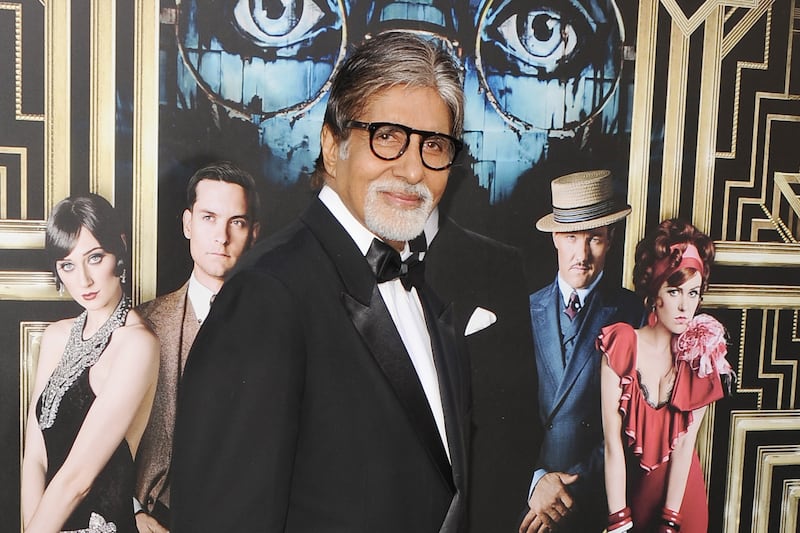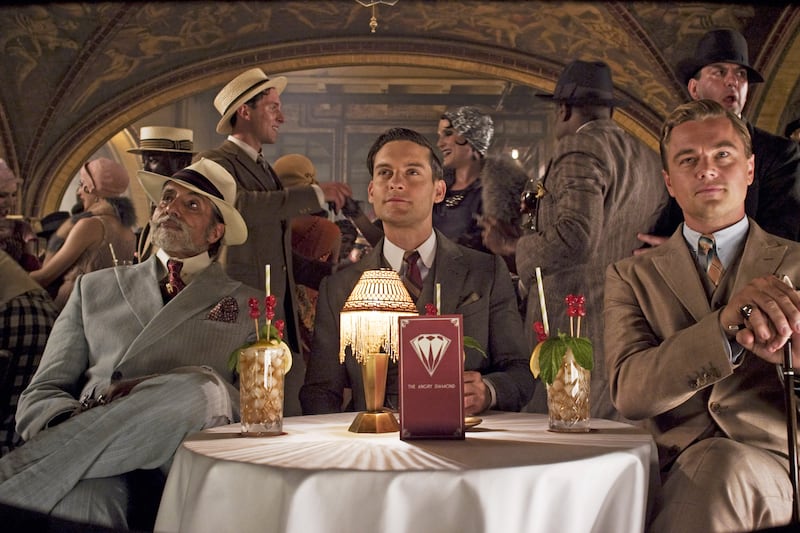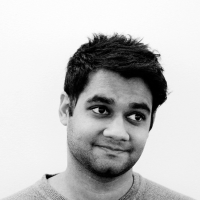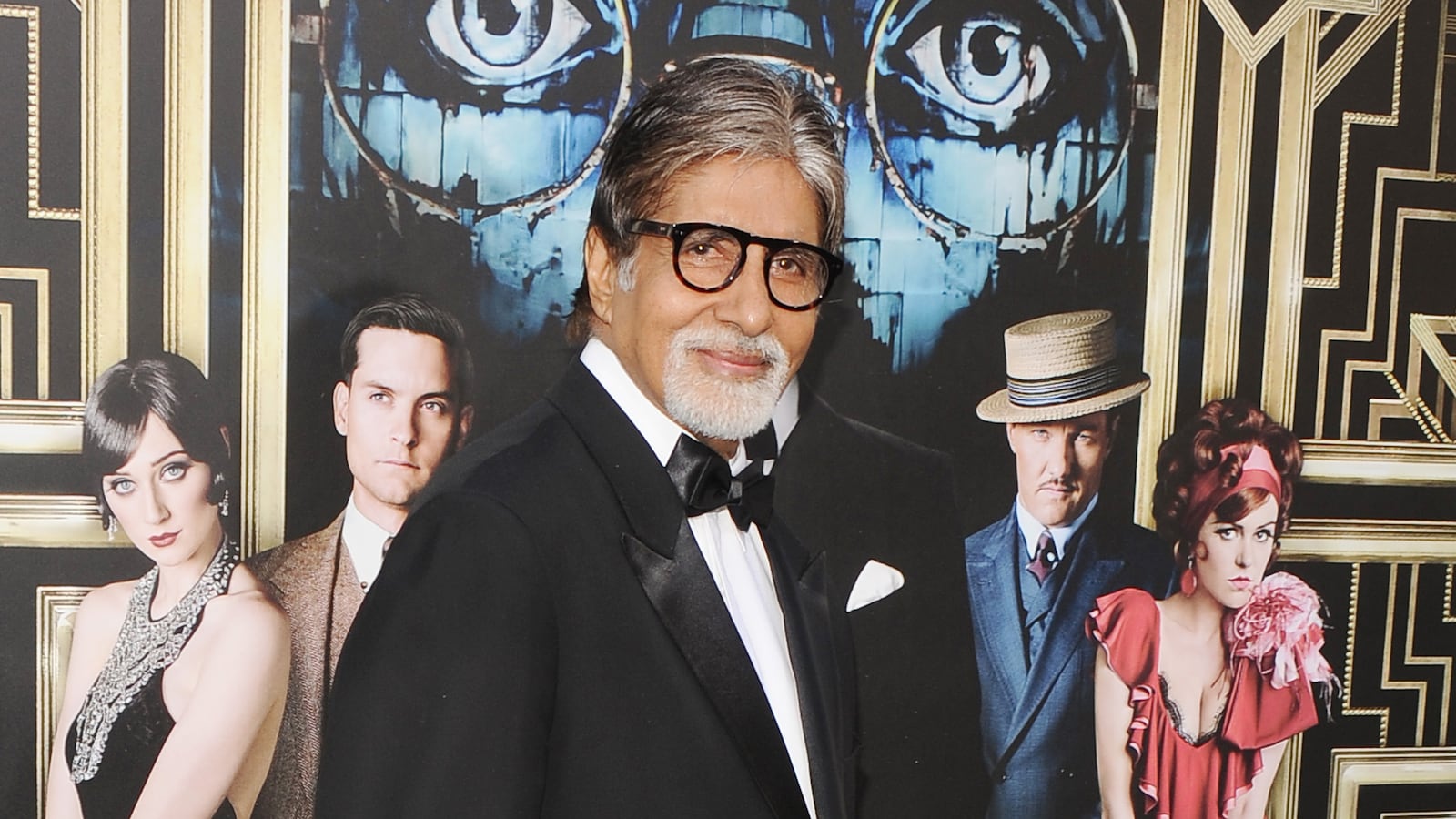Amitabh Bachchan is a tall Indian film legend. In Baz Luhrmann’s bloated The Great Gatsby he plays Meyer Wolfshiem, a “small flat-nosed Jew.” In the words of Daisy Buchanan, “Bachchan? What Bachchan?”
Bachchan (pronounced “Bach-an”) isn’t fooling anyone. In his roughly seven minutes on screen (which begin with a bombastic “My boy!”), the Bollywood star looks like an Indian man, and his accent slithers out when pronouncing things like “discov-ahd.”

All of this isn’t really of great consequence, since the actor’s not meant to be a literal—or historically accurate—translation of F. Scott Fiztgerald’s character, a shady gambler who fixed the 1919 World Series. Instead, Bachchan’s here because he’s “the Big B,” Bollywood’s most cherished grandfather. (His wife, son, and daughter-in-law are all A-listers in the industry.) Bachchan and Lurhmann are friends, and the director wanted to avoid drawing Wolfsheim in an “anti-Semitic manner” like in the book.
Luhrmann’s melodramatic film, frolicking in its excess like any lavish Bollywood extravaganza, is the perfect stage for India’s biggest star.
“He’s an institution. He’s in every Indian’s life. He is god,” says film critic Anu Chopra—and she’s right. Devotion to Bachchan is nothing like fanboy craze for Hollywood stars, but rather, “he’s absolutely worshiped. I don’t think anyone prays to George Clooney.”
That’s what happened in 1982, when Bachchan ruptured his spleen after a botched stunt. He spent months in the hospital, while movie watchers prayed—sometimes to shrines of the actor—for his recovery.
Even before capitulating to that stratosphere of stardom, Bachchan was a cult hero. In ’70s blockbusters, he vacillated between playing India’s “angry young man” and a chocolate star (that’s romantic lead, in Hollywood terms). For the next two decades he dabbled in politics, returned to film, retired, and returned again—this time soaked in black hair dye and cast as young characters. It was awkward and unsuccessful.
In the 2000s, he let his hair go gray, grew the refined goatee he sports today, and embraced his grandfatherly position in the film industry. He soared in popularity as host of India’s version of Who Wants to Be a Millionaire. The Big B had made his comeback.
“It’s like separating the man from the boys,” says Bollywood historian S.M.M. Ausaja, who’s known Bachchan for 15 years. “The Great Gatsby will be a cakewalk.”
And when the Gatsby trailers first came out, cinema aficionados, or just Indians who recognized a legendary face, did a double take when Bachchan popped up.
“I certainly have seen the trailer with Bachchan and thought, wait a second, did I see that right?” says Raj Iyer, a marketing executive who was born in India. Iyer says there’s no doubt that Bachchan will boost business—Indians are already clamoring to see the film. But it’s impossible to quantify that means in ticket sales. If it’s any indication, Bachchan was cheered the most, mostly by rabid Indian fans, at the film’s red-carpet premiere in New York City.

Despite this early reaction, Chopra thinks that while the film is a historic moment for Bachchan, Gatsby won’t blow up in India. “No Hollywood film ever makes as much noise as an A-grade Bollywood film,” says Chopra. “The market is 90 percent indigenous.”
Bachchan isn’t the only huge actor in the film, even by Indian standards. Two of the all-time highest-grossing Hollywood films in the nation are Tobey Maguire’s Spider-Man 3 and, of course, Titanic. (Ten years ago I witnessed my uncle watching Titanic for the 10th time on television, saying “Ahhh, Jack, the magnificent Jack,” when DiCaprio graced the screen.)
Chopra says the $120 million movie won’t change Bachchan’s career: he’s just too big already. Rachel Dwyer, a professor of Indian cinema at the University of London, agrees that what matters here is that a star of Bachchan’s stature is making his debut in Hollywood—it’s unlikely that his turn as Wolfsheim will revolutionize the way Hollywood casts Indian actors.
And there’s a quiet invasion already underway. Anupam Kher played the psychiatrist in Silver Linings Playbook. Anil Kapoor was in Mission: Impossible—Ghost Protocol. And Irrfan Khan, Hollywood’s obsession, is in everything these days (The Amazing Spider-Man, Life of Pi).
There’s really little that can go wrong in casting a megawatt Bollywood star in America. At least recently, that is. In 1984’s Indiana Jones and the Temple of Doom, Amrish Puri yelled, “Kali ma,” and tried to rip Harrison Ford’s heart out.
That didn’t translate well.





